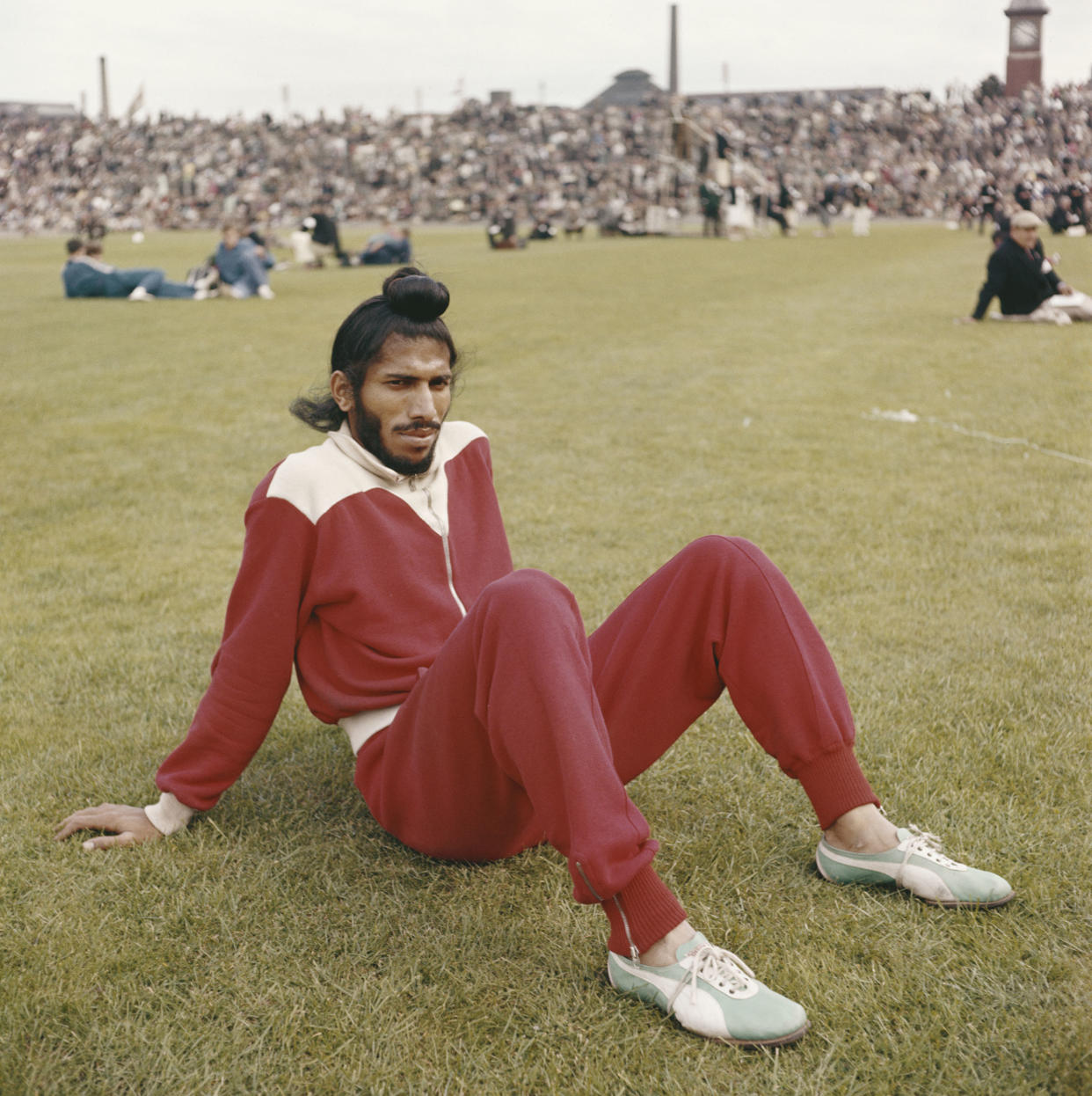Actor Farhan Akhtar Pays Tribute to Legendary Sprinter Milkha Singh, India’s ‘Flying Sikh’

- Oops!Something went wrong.Please try again later.
- Oops!Something went wrong.Please try again later.
Singh at an athletics meet in Edinburgh in 1960 Credit - Popperfoto/Getty Images
I played Milkha Singh—the Indian sporting legend who died on June 18 of COVID-19 complications at age 91—in the 2013 biopic Bhaag Milkha Bhaag. (The title translates to Run Milkha Run.) Singh was a child of partition, who came from poverty, but he had a lot of faith in himself and the belief that if you work hard, you will be remembered. That, to me, is his legacy.
Back in my school days, I remember how my physical education teacher would often point to Singh as an example when we would slack off on our training. Many of us were told that growing up: if you want to be successful in sports, you have to train like this guy.
And the first time we met was at a running track in Mumbai where I was training for the film. Singh had spent time serving in the army before his athletic career; I expected him to be concise and terse in his demeanor. But he quickly put me at ease. He arrived dressed in a tracksuit, and told me: “Let’s not stand here and talk, let’s jog.” You can’t be stiff when you’re running; you have to relax. There was an electric energy; once young athletes on the field realized he was in their presence, they all rushed to touch his feet as a sign of respect.
Singh—or the “Flying Sikh,” as he was widely known and beloved— came into the spotlight at a time when India was still creating an identity for itself as a nation. He became the first Indian athlete to win a gold medal at the Commonwealth Games in 1958. He represented India in track and field in three Olympics, and narrowly missed out on a bronze medal at the 1960 Games in Rome. His performance set an Indian national record that lasted for nearly 40 years, although his inability to secure an Olympic medal weighed heavily on him even decades later.
As a child, Singh witnessed the deaths of his parents and siblings during India’s violent partition in 1947. It would have been totally understandable for Singh to feel anger, betrayal and resentment towards Pakistan over the killing of his family. It can take more than a lifetime to get over that sort of trauma, but he somehow chose to make peace with it; despite everything, he chose love as a guiding force. And he continued to represent healing and forgiveness at a time when India and Pakistan still struggle with issues related to caste, religion and race. When Singh talked about partition more recently he would emphasize that people aren’t inherently bad, circumstances are. He would later say, “whenever I ran, India and Pakistan both ran with me.”
I remember exactly what Singh told me when I asked what he wanted me to convey in Bhaag Milkha Bhaag: “I want everyone to know that Milkha Singh worked harder than everybody else and that’s why he became Milkha Singh.” That became my driving force for doing the film—to work harder than I’ve ever worked before to try and embody his spirit. His dream was always for an Indian to win an Olympic medal in track and field. Hopefully his legacy will inspire others to make that dream a reality.
—As told to Sanya Mansoor
A version of this story appears in the July 05, 2021 issue of TIME.
